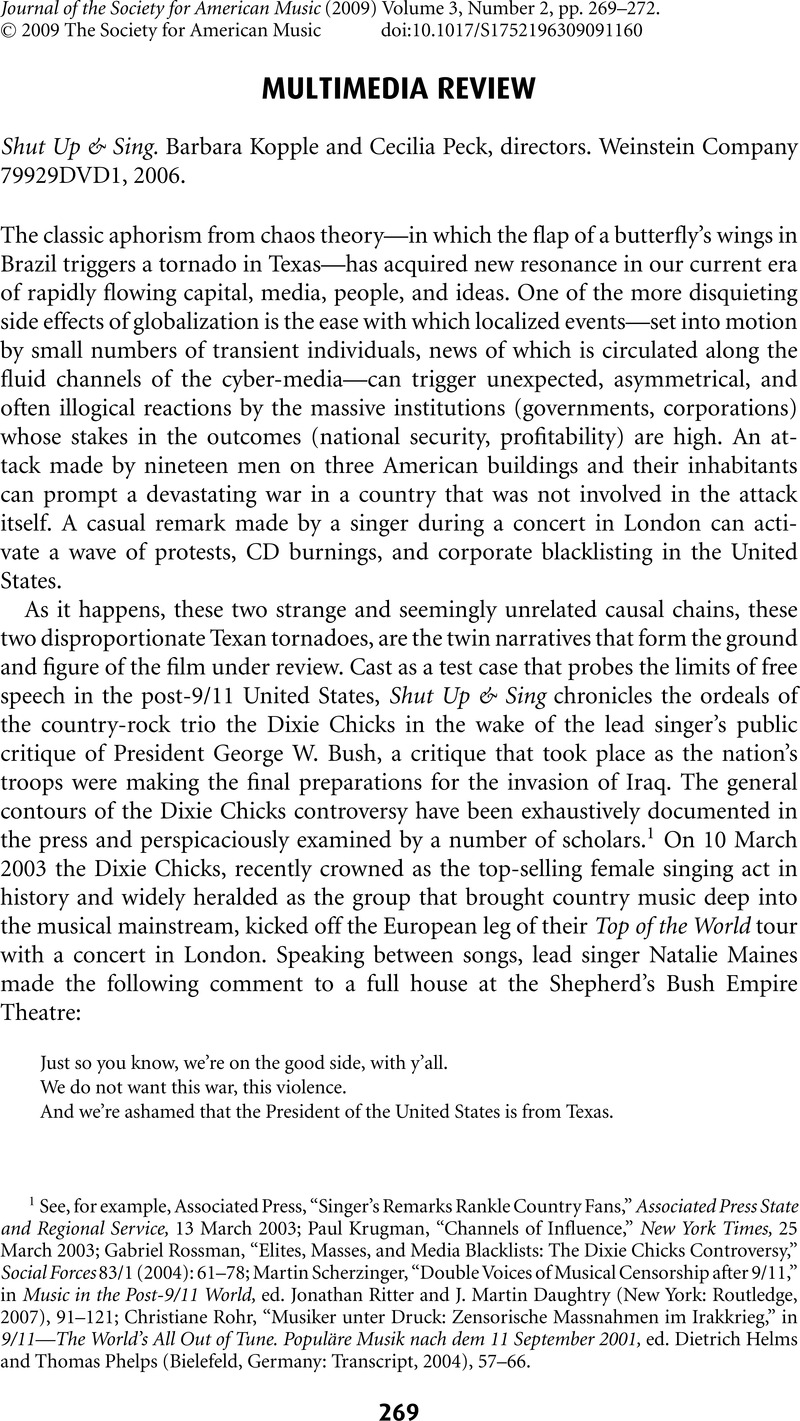No CrossRef data available.
Published online by Cambridge University Press: 01 May 2009

1 See, for example, Associated Press, “Singer's Remarks Rankle Country Fans,” Associated Press State and Regional Service, 13 March 2003; Paul Krugman, “Channels of Influence,” New York Times, 25 March 2003; Rossman, Gabriel, “Elites, Masses, and Media Blacklists: The Dixie Chicks Controversy,” Social Forces 83/1 (2004): 61–78CrossRefGoogle Scholar; Scherzinger, Martin, “Double Voices of Musical Censorship after 9/11,” in Music in the Post-9/11 World, ed. Ritter, Jonathan and Daughtry, J. Martin (New York: Routledge, 2007), 91–121Google Scholar; Rohr, Christiane, “Musiker unter Druck: Zensorische Massnahmen im Irakkrieg,” in 9/11—The World's All Out of Tune. Populäre Musik nach dem 11 September 2001, ed. Helms, Dietrich and Phelps, Thomas (Bielefeld, Germany: Transcript, 2004), 57–66Google Scholar.
2 Betty Clarke, “The Dixie Chicks, Shepherd's Bush Empire, London,” The Guardian, 12 March 2003, http://www.guardian.co.uk/music/2003/mar/12/artsfeatures.popandrock.
3 AP, “Singer's Remarks.”